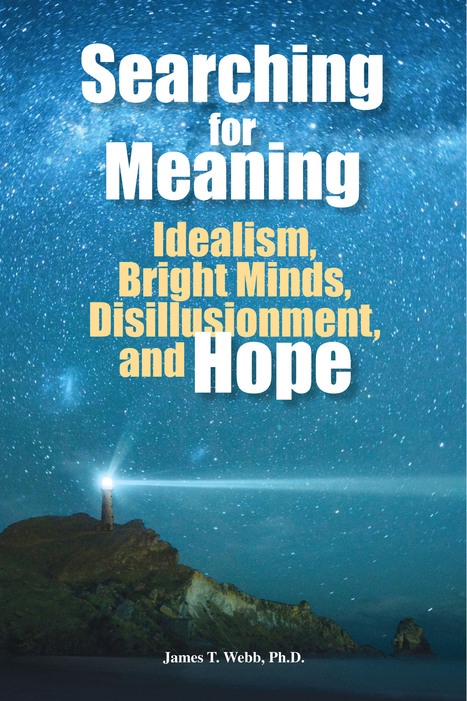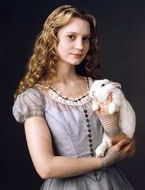 Your new post is loading...
 Your new post is loading...

|
Scooped by
Douglas Eby
|
By Jane Macondo. - "Gifted adults are largely invisible. One of the reasons very few apply the term to themselves is due to the misconceptions about giftedness. "Adults who were identified as gifted children were often not provided information about what it means to be gifted and, as a result, think they have outgrown their ‘giftedness’. For a variety of reasons, parents of gifted children also often fail to identify their own giftedness."

|
Scooped by
Douglas Eby
|
People who browse the Internet a lot are more likely to show depressive symptoms, according to a study. But other researchers question the findings.

|
Scooped by
Douglas Eby
|
Monopoly, nuclear fission, and programming: Ladies did it first. "From computer programming to nuclear fission to the paper bag machine, it's time to stop erasing these women from their great works."

|
Scooped by
Douglas Eby
|
Wunderkind, genius, prodigy. Freak, geek, nerd. How we label exceptional people and ourselves affects our identity and what we think about the reality and value of our talents, and the possibilities of expressing them in the world.

|
Scooped by
Douglas Eby
|
Qualities of giftedness show up early in life and continue as an adult – characteristics such as being perfectionistic; persevering with interests; being an avid reader; having a vivid imagination and persistent curiosity; being highly sensitive... “Her thoughts and feelings had never fit into the box that was comfortable and reassuring for most children. Her appetite for learning was insatiable. Reading was more nourishing than food. Thinking, analyzing, and synthesizing were better than Barbie.”

|
Scooped by
Douglas Eby
|
If you aren’t involved in experiences that allow you to demonstrate or develop your abilities, then how do you know if you are still gifted as an adult?

|
Scooped by
Douglas Eby
|
By Sharon Lind. Key areas for gifted adults include acknowledging gifts; identity development; permission to be growing; overexcitabilities; coping skills.

|
Scooped by
Douglas Eby
|
Criticism and self-criticism interfere with our ability to live as strongly, passionately, effectively and creatively as we would like to live. Kate Winslet has admitted that before going off to a movie shoot, she sometimes thinks, “I’m a fraud, and they’re going to fire me… I’m fat; I’m ugly.” Highly creative and talented people are, according to research on giftedness, often susceptible to perfectionism and unreasonably high standards and expectations that can lead to exaggerated criticism.

|
Scooped by
Douglas Eby
|
James Webb, PhD: "Dr. Linda Silverman and Dr. Susan Daniels noted that many gifted children and adults are intense and sensitive in their idealism, and they do search for meaning. They want to do things that will make a difference, and they are concerned with issues of fairness and equity. When intensity and sensitivity are combined with idealism, as so often happens with bright children and adults, good things can happen because they can keenly see how things might be." > book: Searching for Meaning: Idealism, Bright Minds, Disillusionment, and Hope book #gifted http://t.co/7RA0OJ9i0Y

|
Scooped by
Douglas Eby
|
“The natural trajectory of giftedness in childhood is not a six-figure salary, perfect happiness, and a guaranteed place in Who’s Who.” Dr. Linda Silverman, director of the Gifted Development Center, goes on to describe an ideal of adult development, beyond the awards won as children:
“It is the deepening of the personality, the strengthening of one’s value system, the creation of greater and greater challenges for oneself…"

|
Scooped by
Douglas Eby
|
True peer relationships are rare and demanding, perhaps especially for those who are exceptional. Many gifted adults may be lonely.

|
Scooped by
Douglas Eby
|
As Linda Silverman, PhD says “Excellence is the hard-won prize of those whose dedication and zeal are fueled by the drive to attain perfection.” Mia Wasikowska earned acclaim for her intense performance in the HBO series “In Treatment.” She plays the title role in the Tim Burton movie “Alice in Wonderland,” and notes that at age 20 she is still fairly new to acting: “I was at dance school doing about 35 hours practice a week until I was 14. Then ballet started to grate – the whole idea of trying to attain perfection started to ruin the experience, so I decided to try another type of performance.”

|
Scooped by
Douglas Eby
|
“I always feel like something of an impostor. I don’t know what I’m doing.” Jodie Foster made that comment when she was guest of honor at the Hollywood Reporter Women in Entertainment Power 100 breakfast, as a recipient of the Sherry Lansing Leadership Award.
|

|
Scooped by
Douglas Eby
|
A personality trait that may often accompany high sensitivity (experienced by many, or most, creative people) is high intensity. Nicole Kidman gave a nice description of what many other actors and other artists experience: “You live with a lot of complicated emotions as an actor, and they whirl around you and create havoc at times. And yet...you’re consciously and unconsciously allowing that to happen." Psychologist Eric Maisel says that ‘smart’ people often experience challenges with personality and a racing brain that "may be flowing directly from your natural endowment.”

|
Scooped by
Douglas Eby
|
The democratization of genius represents a victory for human equality. But if everyone can be a genius, then what does it mean? By Darrin M. McMahon, author of Divine Fury: A History of Genius http://buff.ly/188jF2e
One of my related articles: "Celebrating giftedness: You may be gifted – get over it" - We may not have realized all or even many of the promises of our identity as a gifted kid, and through circumstance or suppression left talents unmanifested or unspoken. But that doesn’t mean we have lost that aspect of who we are. http://highability.org/67/

|
Scooped by
Douglas Eby
|
“I don’t think I’m even close to fulfilling my potential.” Actor Kerry Washington Psychologist Kenneth W. Christian delineates some of the most prominent patterns of thinking and behavior he has found that may lead to undermining and underachievement as adults.
He says "Pulling back from your potential is a kind of abdication, an abandoment of your own best interests."

|
Scooped by
Douglas Eby
|
It may be natural to feel frustrated at not being able to solve a math problem or some other challenge when we are growing up, and still learning – but how do you feel about your abilities and your identity, when you confront a deep gap between what you would like to accomplish, and what you believe you can?

|
Scooped by
Douglas Eby
|
Does a highly capable intellect ensure you will perform well all the time in demanding situations? Not according to some research.

|
Scooped by
Douglas Eby
|
Psychiatric misdiagnosis and unnecessary or even destructive medication for "troubling" symptoms is an issue that impacts many gifted and talented people. Gogo Lidz writes, “Between the ages of 16 and 21, I was prescribed more than fifteen different stimulants, antidepressants, antipsychotics, and mood stabilizers. The cure was worse than the disease.”

|
Scooped by
Douglas Eby
|
What Is Impostor Syndrome? That was the question we attempted to answer during #gtchat as well as ways to combat it. Feeling like a fake, just lucky, or false modesty are all characteristics of Imp...

|
Scooped by
Douglas Eby
|
Being highly talented and exceptional can engender a complex mix of feelings about your self and how you relate to your advanced abilities, and to the world. Alyssa Milano is another accomplished and talented woman with these kinds of feelings:
"I had to deal with a certain amount of guilt that accompanied being successful at a young age. The guilt that my parents gave up their dreams, friendships, and the only life they knew to make *my* triumphs a possibility..."

|
Scooped by
Douglas Eby
|
Actor Emily Mortimer, even with the success of the hit TV show The Newsroom, says she still doubts her abilities, and “I’m probably far too self-conscious to be an actress.” Alison Pill [right] also has commented about insecurity, which many talented people experience.

|
Scooped by
Douglas Eby
|
“Academic intelligence has little to do with emotional life… people with high IQs can be stunningly poor pilots of their private lives.” Daniel Goleman But writer Joanna Fletcher notes that Goleman gives examples of high IQ people “who are not achieving the heights they were destined for” and thinks “his observation that people with high IQ may have low emotional intelligence and therefore lower success is flawed."

|
Scooped by
Douglas Eby
|
Many actors and other performers identify themselves as being shy as children or adults, or consider themselves introverted or highly sensitive. J.K. Rowling - “I had been writing almost continuously since the age of six but I had never been so excited about an idea before ["Harry Potter"]. To my immense frustration, I didn’t have a pen that worked, and I was too shy to ask anybody if I could borrow one… “But I do think that this was probably a good thing. I simply sat and thought, for four (delayed train) hours, while all the details bubbled up in my brain…”

|
Scooped by
Douglas Eby
|
“It’s almost like the better I do, the more my feeling of inadequacy actually increases, because I’m just going, Any moment, someone’s going to find out I’m a total fraud, and that I don’t deserve any of what I’ve achieved.” Emma Watson One of the reasons many of us have challenges in realizing and expressing our exceptional abilities is that we don’t honestly acknowledge them.
|



 Your new post is loading...
Your new post is loading...



![Excessive Internet Use Linked to Depression [or not] | TalentDevelop | High Ability | Scoop.it](https://img.scoop.it/OZ-wDQ2GzA0B4g7Q6jur-Dl72eJkfbmt4t8yenImKBVvK0kTmF0xjctABnaLJIm9)






























